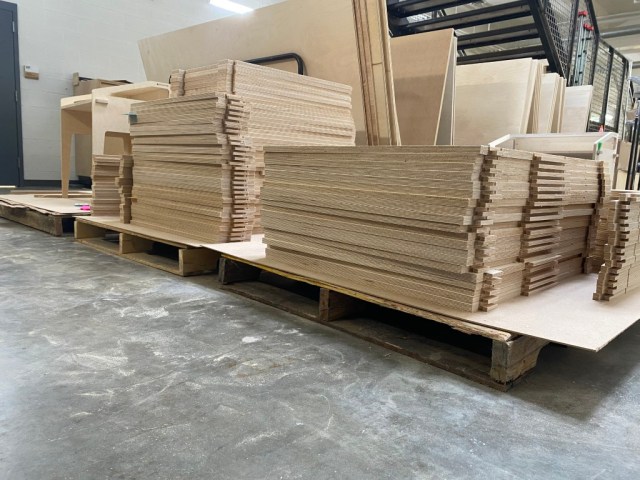
One year ago, I stood in the lobby of Open Works — the makerspace in Baltimore where I work — and watched our members pack their studio supplies into their cars and leave, one by one. On Monday, March 16th, we had been shut down by order of the Governor’s office as Covid-19 cases began spreading through Maryland. By Friday, we knew it was going to be a lot longer than that. By the end of the weekend, we were in the PPE business, fueled by a viral social media post and an army of volunteers.

That project, named Makers Unite, made 28,270 face shields by mid-June. 388 volunteers across the state 3D-printed headbands and dropped them off at Open Works. Our crew assembled, packaged, and distributed them with help from our friends at Innovation Works. This is a familiar story from the pandemic, as thousands of grassroots maker groups eventually manufactured millions of units of PPE. It also illustrates how makers can rapidly scale low-hierarchy, self-organizing systems to solve hyper-local supply shortages.
By early July, Open Works was back open. But the downward trend in case counts didn’t last past the summer. Baltimore City Schools announced they would remain remote for the fall. Open Works was operating under 25% capacity caps by order of the Mayor. As the fall semester wound down, and it became clear remote school would last the winter, I heard about a group two counties over that had started making desks for young students who couldn’t afford one. Called Desks by Dads, this informal group organized build days on Facebook, linking dozens of garage workshops into a crowdsourced factory.

I talked to one of the volunteers, Stephen Smith, in late December. He shared with me some of their triumphs, and also told me the bottlenecks were assembly time (2-3 hours per desk) and delivery (hard to fit assembled desks in a car). I challenged Zach, our Contract Services Manager, to come up with a flat-pack design that could be cut on our CNC. He cut a prototype held together with just zip ties and wedges — an idea cribbed from our friend Bill Young at ShopBot. After three prototypes, we had stripped it down to a simple, stable, and inexpensive design.

On January 20th, we launched a request form on the listserv for Baltimore City School principals. By the 22nd, we had a whopping 4,390 requests from 73 schools across Baltimore! We closed the form, set up a donation link on our website, ordered some plywood, and got cutting! We released the design as an open-source download a week later, and Stanley Black and Decker’s makerspace and the National Aquarium’s exhibit shop started contributing desks to the project using their own CNC routers. We’ve delivered 274 desks and stools so far, and hope to get 1,000 out the door by the end of the semester.

The desk is designed so that the end user can put it together themselves — just four wedges, two zip ties, and a few tenons. In that way, it becomes a STEM lesson for the young people receiving them. The blank plywood has become a platform for their creativity, with students customizing them with paint, collage, and glitter. Even though we can’t gather in person right now, this project manages to bring everything we love about makerspaces home — community, friends, and great builds. Makers Unite!

Want to make desks for your community? Download the .dxf file and documentation here, check out the assembly video here, or pay a desk forward for a child in need.
ADVERTISEMENT
Join Make: Community Today








